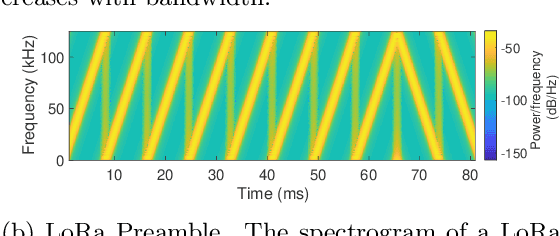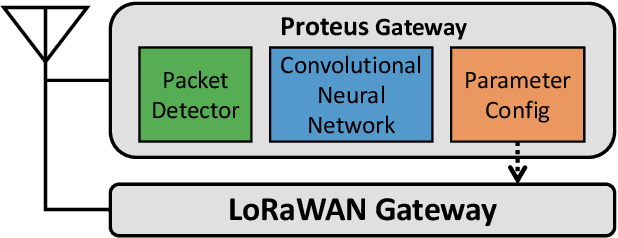No Size Fits All: Automated Radio Configuration for LPWANs
Paper and Code
Sep 10, 2021



Low power long-range networks like LoRa have become increasingly mainstream for Internet of Things deployments. Given the versatility of applications that these protocols enable, they support many data rates and bandwidths. Yet, for a given network that supports hundreds of devices over multiple miles, the network operator typically needs to specify the same configuration or among a small subset of configurations for all the client devices to communicate with the gateway. This one-size-fits-all approach is highly inefficient in large networks. We propose an alternative approach -- we allow network devices to transmit at any data rate they choose. The gateway uses the first few symbols in the preamble to classify the correct data rate, switches its configuration, and then decodes the data. Our design leverages the inherent asymmetry in outdoor IoT deployments where the clients are power-starved and resource-constrained, but the gateway is not. Our gateway design, Proteus, runs a neural network architecture and is backward compatible with existing LoRa protocols. Our experiments reveal that Proteus can identify the correct configuration with over 97% accuracy in both indoor and outdoor deployments. Our network architecture leads to a 3.8 to 11 times increase in throughput for our LoRa testbed.
 Add to Chrome
Add to Chrome Add to Firefox
Add to Firefox Add to Edge
Add to Edge